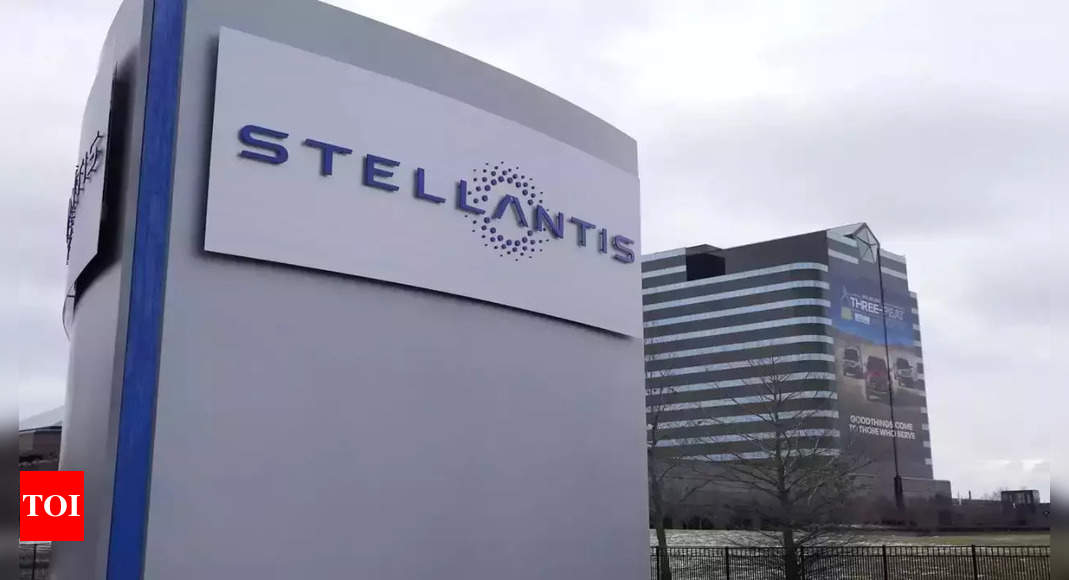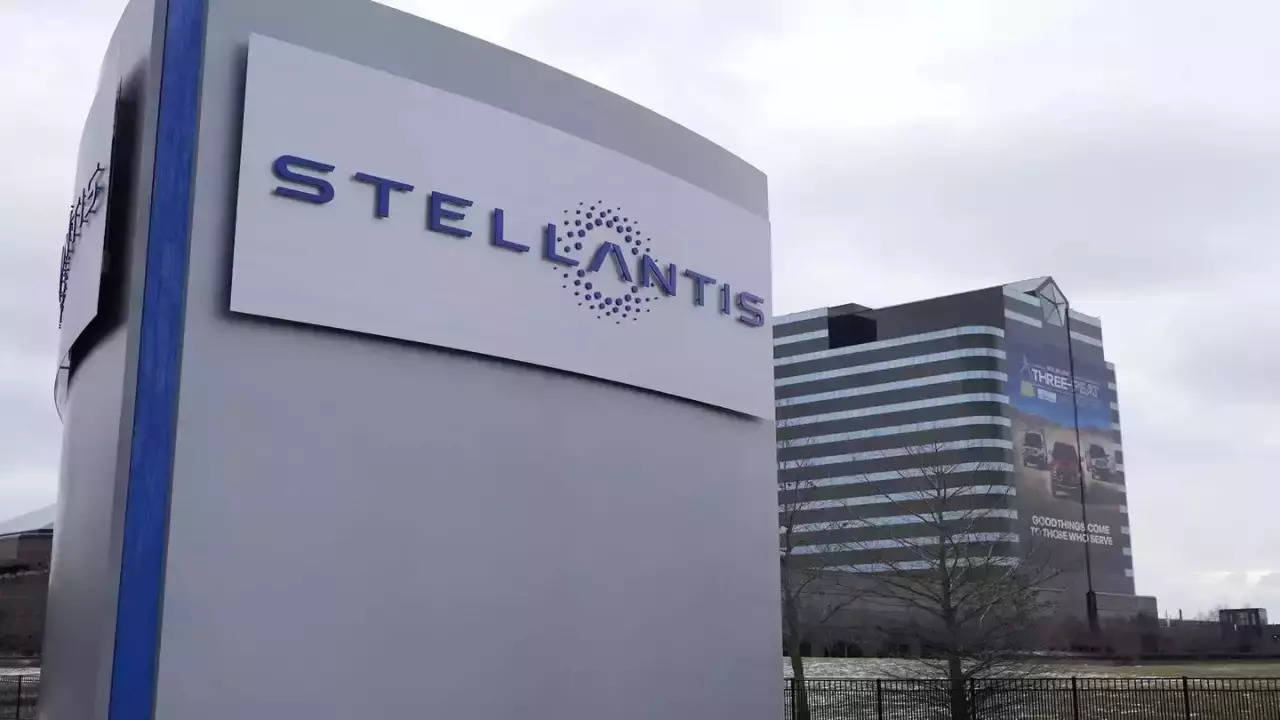[ad_1]
NEW DELHI: Global automotive major Stellantis plans to make India a hub for exports of electric vehicles initially targeting Southeast Asian markets, according to a senior company official. Stellantis India on Thursday commenced exports of its Made in India ‘E-C3’ electric car with the shipment of 500 units to Indonesia and is seeking to leverage on India’s cost competitiveness in manufacturing to increase its overseas shipments.
“We will be the first ‘multinational OEM’ in India to achieve this feat (to export EVs). We also have plans for a couple of other markets, Nepal and Bhutan. This is just the start…the plan is to take it from there,” Stellantis India CEO & MD Aditya Jairaj told PTI.
Stressing on the significance of commencement of exports of the E-C3, he said, “We have a dedication to the government-led ‘Make in India’ initiative. We are focusing on this as a very important aspect for Stellantis as a company.
Moreover, he said, “This is also aligned with Citroen’s ambitions of democratising electric mobility. The idea of this is to increase adoption of sustainable and clean modes of transportation.
Stellantis, which was formed after the merger of Italian-American conglomerate Fiat Chrysler Automobiles and French PSA Group, currently sells its Jeep and Citroen brands in India.
With ‘Make in India’ at the centre of the company’s strategy, Jairaj said, “It is also important for us as a player in the Indian automotive space to be competitive. We want to leverage India as a ‘best cost country’, which is what we call ‘India for the world’.”
When asked if Stellantis would expand the export market for EVs further, he said, “We’re also evaluating some other markets where the EV acceptance is at a good level, where we can send our cars.”
At this point, he said, “We are at advanced stages of evaluating exporting the E-C3 to other Southeast Asian markets. If we see today, in Southeast Asia the EV penetration is quite significant in several markets and there is the customer demand.”
On the whole, he added, “We’re looking at West and East of India (for EV exports) but we have not yet come to a stage where we can announce that we are going to be sending these cars to these different locations, but very soon we will add to this.”.
Commenting on the significance of India in Stellantis’ overall export strategy, Jairaj said, “One of the key reasons is the ability for India to export to different markets.”
Citing the example of the company’s conventional engine vehicles, he said, “C3 is exported to Africa. We send it to multiple countries in Africa. We’re also evaluating other right-hand drive markets that it can be exported to. We’re also sending C3 Aircross to Malaysia and Indonesia. The Citroen brand is being exported to multiple markets right now.”
Stellantis’ other brand Jeep is exported from India to Japan, a developed market where the quality standards requirements are very high, Jairan said, adding “We’re also looking at exporting Jeep to other Southeast Asian markets and also in Africa. So as a whole exports will be very significant.”
He further said the idea is to continue to focus on this as “the quality of product from India is comparable to the best in the world and from a cost perspective we are very competitive”.
Also in a changing world, he said, “We are very flexible and dynamic and our reaction time to making changes has come down. We are leveraging all of these and exports are a very significant tool, I would say at this point for Stellantis in India.”
“We will be the first ‘multinational OEM’ in India to achieve this feat (to export EVs). We also have plans for a couple of other markets, Nepal and Bhutan. This is just the start…the plan is to take it from there,” Stellantis India CEO & MD Aditya Jairaj told PTI.
Stressing on the significance of commencement of exports of the E-C3, he said, “We have a dedication to the government-led ‘Make in India’ initiative. We are focusing on this as a very important aspect for Stellantis as a company.
Moreover, he said, “This is also aligned with Citroen’s ambitions of democratising electric mobility. The idea of this is to increase adoption of sustainable and clean modes of transportation.
Stellantis, which was formed after the merger of Italian-American conglomerate Fiat Chrysler Automobiles and French PSA Group, currently sells its Jeep and Citroen brands in India.
With ‘Make in India’ at the centre of the company’s strategy, Jairaj said, “It is also important for us as a player in the Indian automotive space to be competitive. We want to leverage India as a ‘best cost country’, which is what we call ‘India for the world’.”
When asked if Stellantis would expand the export market for EVs further, he said, “We’re also evaluating some other markets where the EV acceptance is at a good level, where we can send our cars.”
At this point, he said, “We are at advanced stages of evaluating exporting the E-C3 to other Southeast Asian markets. If we see today, in Southeast Asia the EV penetration is quite significant in several markets and there is the customer demand.”
On the whole, he added, “We’re looking at West and East of India (for EV exports) but we have not yet come to a stage where we can announce that we are going to be sending these cars to these different locations, but very soon we will add to this.”.
Commenting on the significance of India in Stellantis’ overall export strategy, Jairaj said, “One of the key reasons is the ability for India to export to different markets.”
Citing the example of the company’s conventional engine vehicles, he said, “C3 is exported to Africa. We send it to multiple countries in Africa. We’re also evaluating other right-hand drive markets that it can be exported to. We’re also sending C3 Aircross to Malaysia and Indonesia. The Citroen brand is being exported to multiple markets right now.”
Stellantis’ other brand Jeep is exported from India to Japan, a developed market where the quality standards requirements are very high, Jairan said, adding “We’re also looking at exporting Jeep to other Southeast Asian markets and also in Africa. So as a whole exports will be very significant.”
He further said the idea is to continue to focus on this as “the quality of product from India is comparable to the best in the world and from a cost perspective we are very competitive”.
Also in a changing world, he said, “We are very flexible and dynamic and our reaction time to making changes has come down. We are leveraging all of these and exports are a very significant tool, I would say at this point for Stellantis in India.”
[ad_2]

